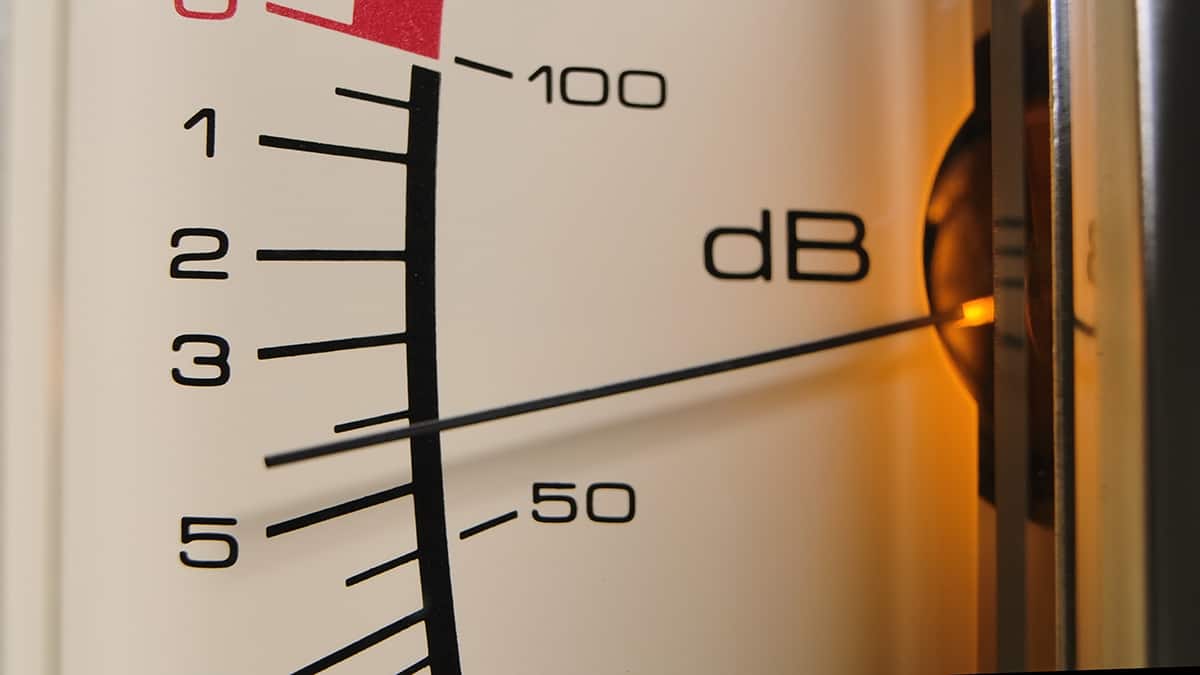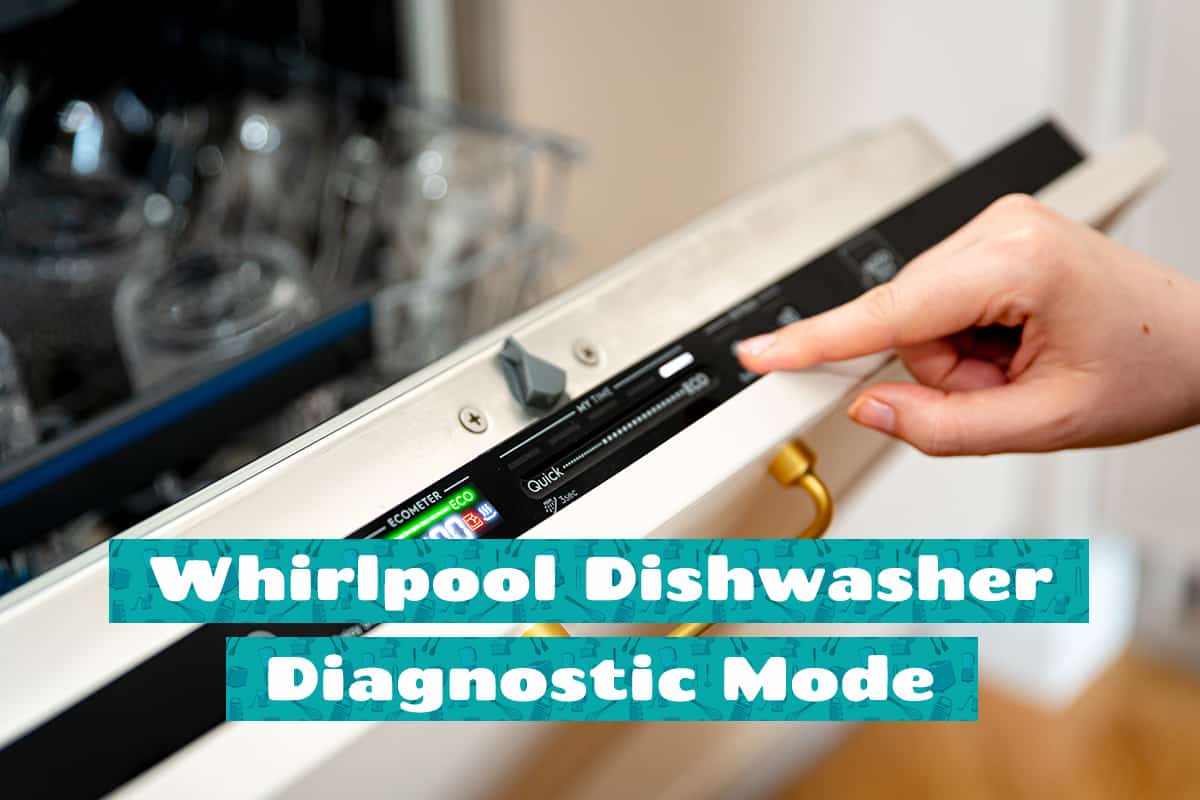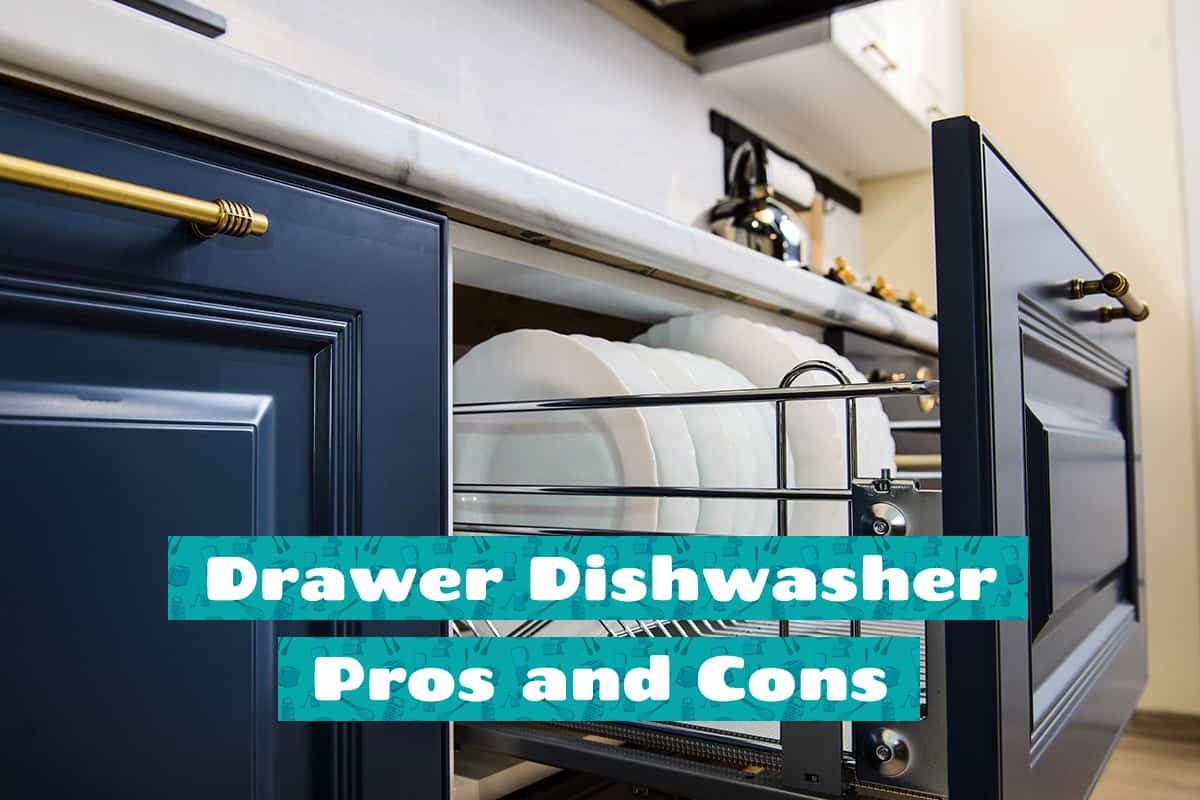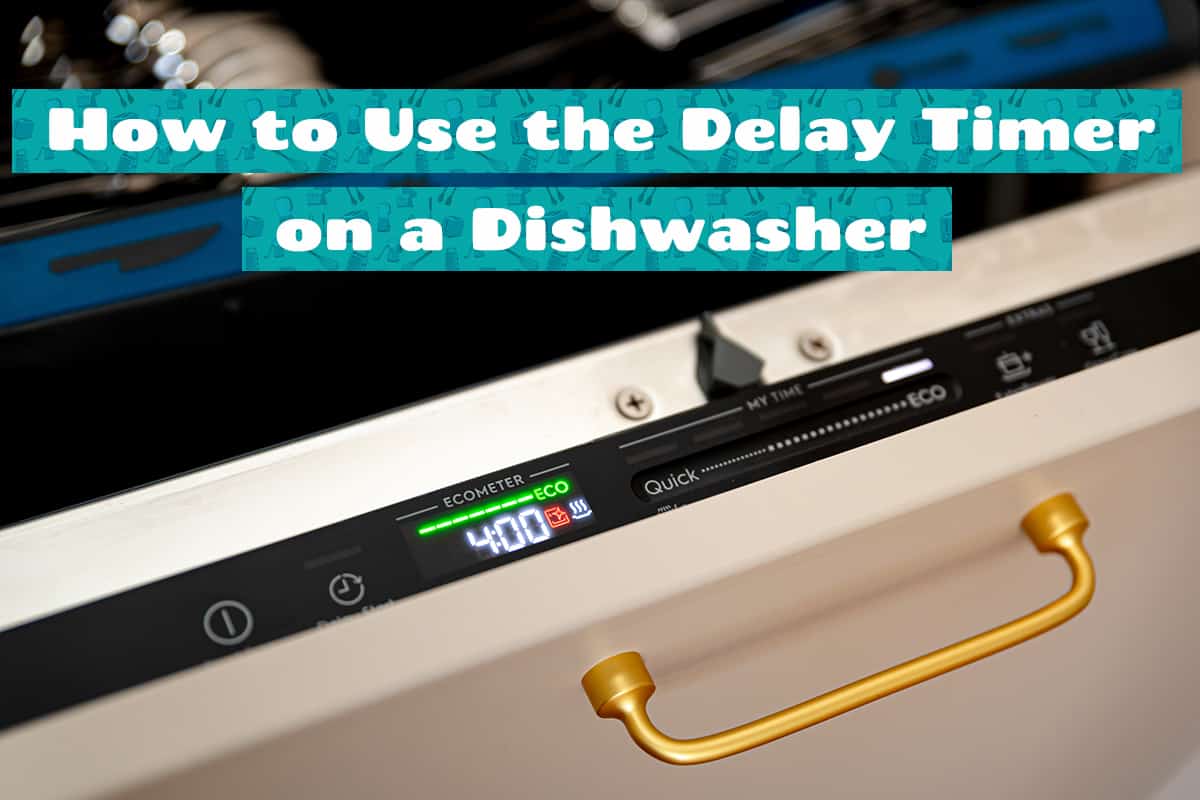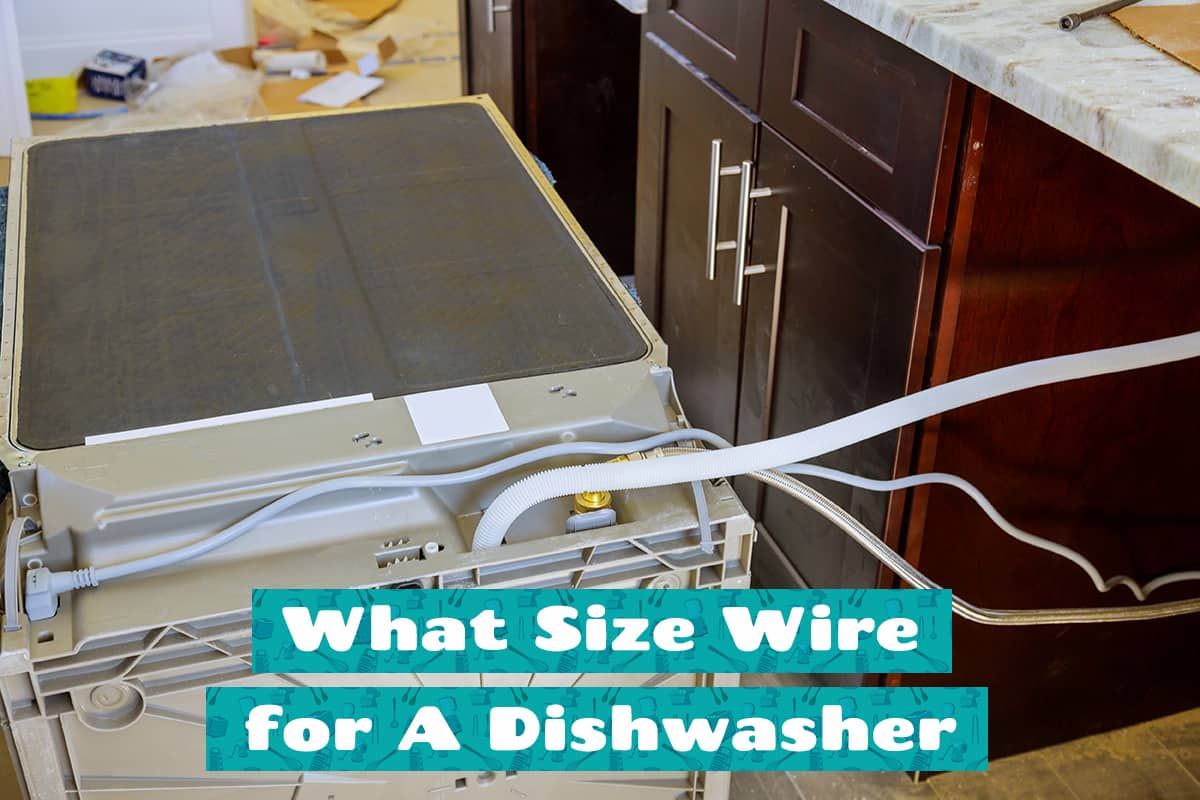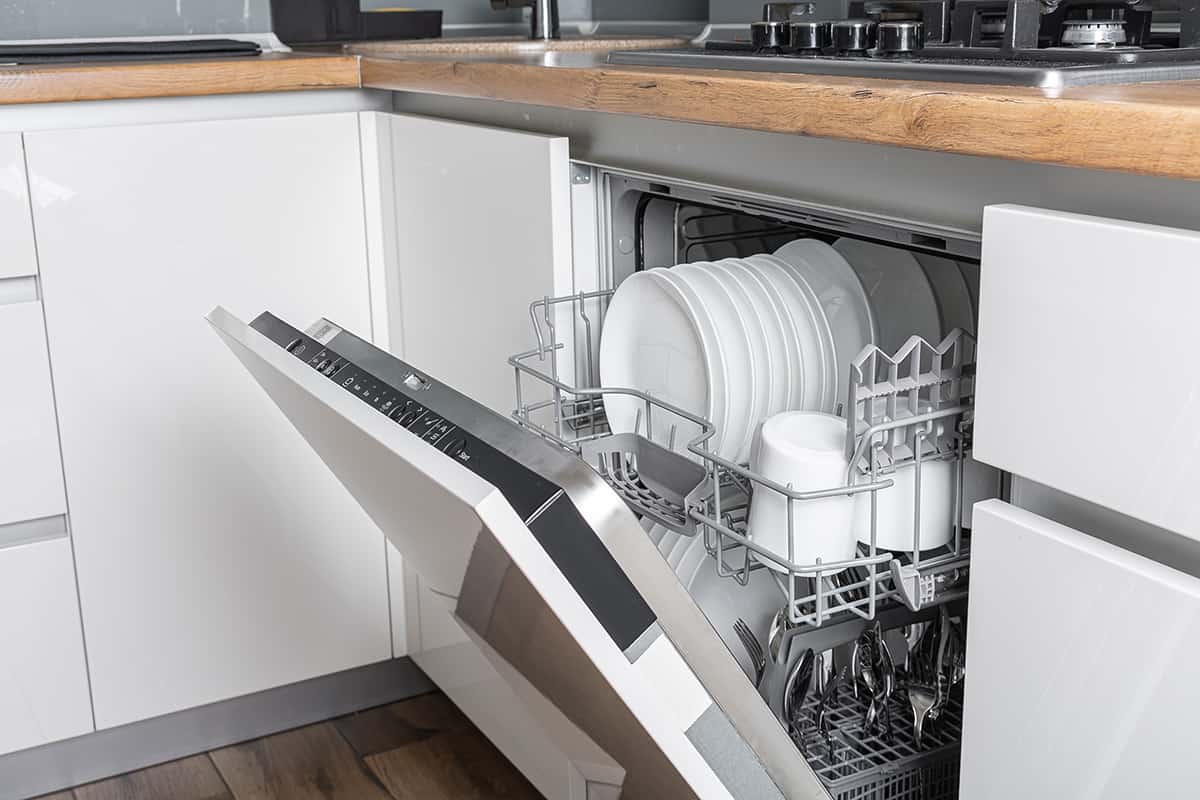Dishwashers aren’t the loudest kitchen appliances you’ll have, but they can be pretty noisy when there’s nothing else running in your kitchen. The typical dishwasher will generate up to 60 decibels of noise, while the quietest models on the market cap at just around 45 decibels.
Below, I’ll provide a decibel chart that shows how loud dishwashers are relative to other sounds. I’ll also explain the different dishwasher noise categories and what things you can do to reduce the noise of your dishwasher.
What Are Decibels?
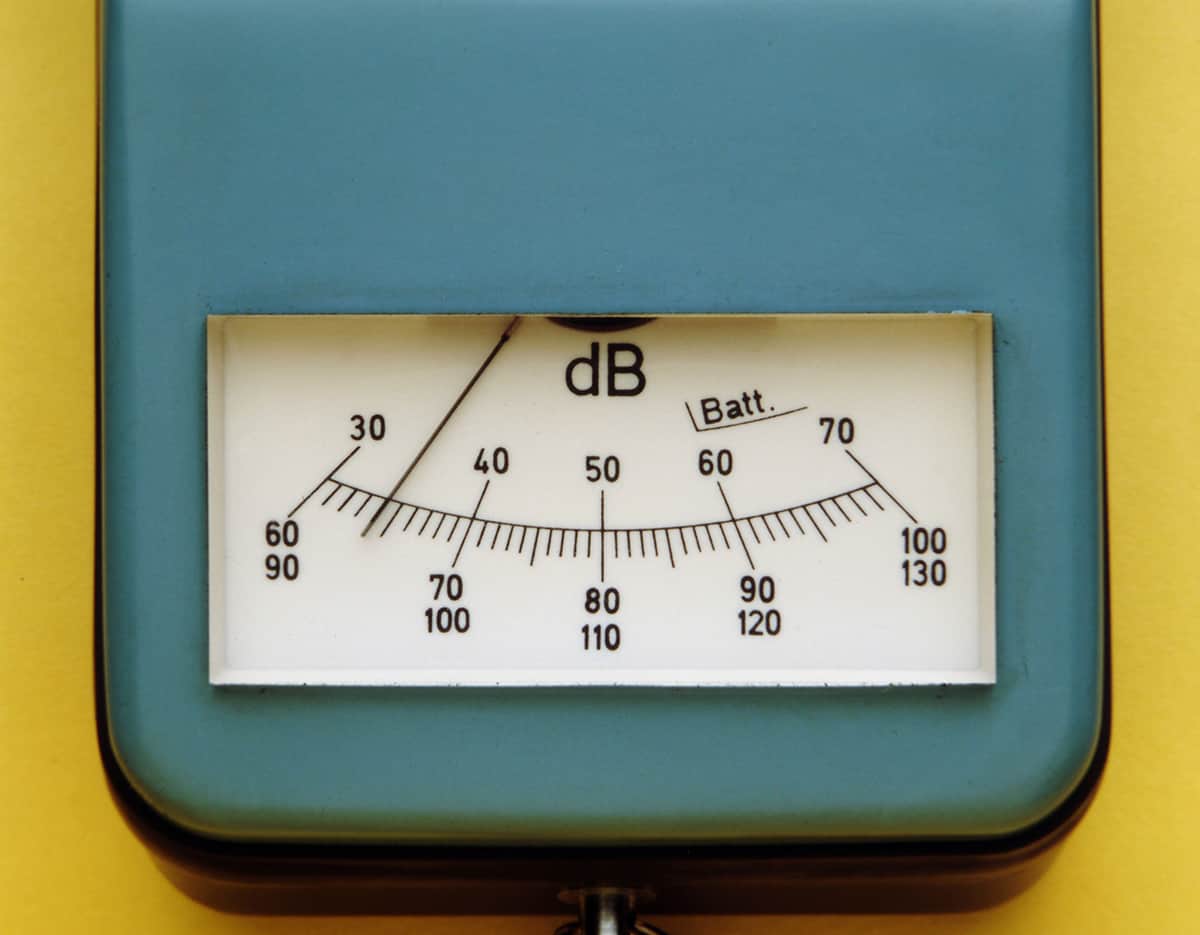
A decibel, which is expressed as dB, is a unit of measurement for acoustic or electric power. An A-weighted decibel (dBA), on the other hand, is used to express the loudness of sounds that we perceive with our ears.
There are several things that affect how individual people perceive loud noises, such as the shape of the ear and hearing loss, as well as the position of your head and torso, and so on. As such, what one person might perceive as annoyingly loud may be a gentle hum to another person.
Sound Chart
To give you an idea of how loud a dishwasher can get, let’s compare its noise levels to those of everyday sounds.
| Sound | Average dBA |
| Breathing | 10 |
| Watch | 20 |
| Whisper | 20 to 30 |
| Average dishwasher | 45 to 55 |
| Fridge compressor | 50 |
| Normal conversation tone | 60 |
| Vacuum cleaner | 70 |
| Washing machine | 80 |
| Garbage disposal | 80 |
| Blender | 90 |
| Lawn mower | 95 |
| Garbage truck | 100 |
| Snowmobile | 105 |
| Chainsaw | 110 |
| Music concert | 115 |
| Thunder | 120 |
| Shotgun | 130 |
| Jet engine | 140 |
As you can see from the table above, the average dishwasher lands somewhere in the middle in terms of common noises. The decibel figure relates to the noise when standing roughly 3 feet away from the appliance.
Dishwasher Decibel Categories
The table above shows that the average dishwasher generates various noise types at between 40 to 60 decibels. That’s a bit quieter than regular conversation tones at home. However, if you were to look at individual dishwasher models, you’d find that they generally fall into 1 of 3-decibel categories.
39 to 45 dBA
Some of the most high-end dishwashers will generate a slight 39 to 45-dBA buzz when turned on. As you look at the following decibel categories for dishwashers, you’ll gain a larger appreciation for how nearly whisper-quiet these units are.
Ultra-quiet dishwashers are ideal for homes or apartments with small kitchens. The acoustics of a kitchen may cause sound to travel farther, which is why having such a dishwasher makes them perfect for these settings.
What you’ll find inside these quiet dishwashers are soundproofing systems, such as stainless-steel tubs. However, you’ll also notice a significant spike in cost. Unless you’re willing to shell out over 2 grand for the Miele G 7566 SCVi AutoDos, you should probably consider “downgrading” to a louder dishwasher.
45 to 49 dBA
There’s not a huge difference between 38 and 49-dBA dishwashers, even when you’re standing close to one. In fact, with a maximum noise output that’s quieter than everyday conversation tones, it’s safe to say that these dishwashers fall into what most people would consider quiet for a kitchen appliance.
Most of the dishwashers available today fall into this decibel category, so you shouldn’t have much trouble finding a relatively quiet appliance. As such, you can spend less than half that of a super-quiet dishwasher and only sacrifice a tiny amount of quietness.
50 to 59 dBA
Dishwashers that fall into this decibel category are just as common as 45 to 49-dBA dishwashers. It’s also worth noting that their prices aren’t foo far apart from each other, making quiet dishwashers the obvious alternative if you prioritize less kitchen noise.
For the most part, these dishwashers will produce only around 50 dBA of noise when they’re filling up with water. It’s only when they change between cycles that their noise output ramps up to 55 to 59 dBA, making it audible from adjacent rooms.
60 dBA and louder
You’ll have a hard time finding such a loud dishwasher since they’ve pretty much gone the way of the dinosaurs. Odds are that if you purchased your dishwasher sometime in the early 2000s, it will drone at an annoying 60 dBA, keeping you and your pets up at night.
One of the only feasible ways you can get your hands on loud dishwashers is by purchasing them second-hand, meaning you can save quite a lot of money but at the cost of additional noise levels. So, unless you plan on running your dishwasher during the daytime, you should consider finding a newer, quieter model.
Can You Soundproof Dishwashers?
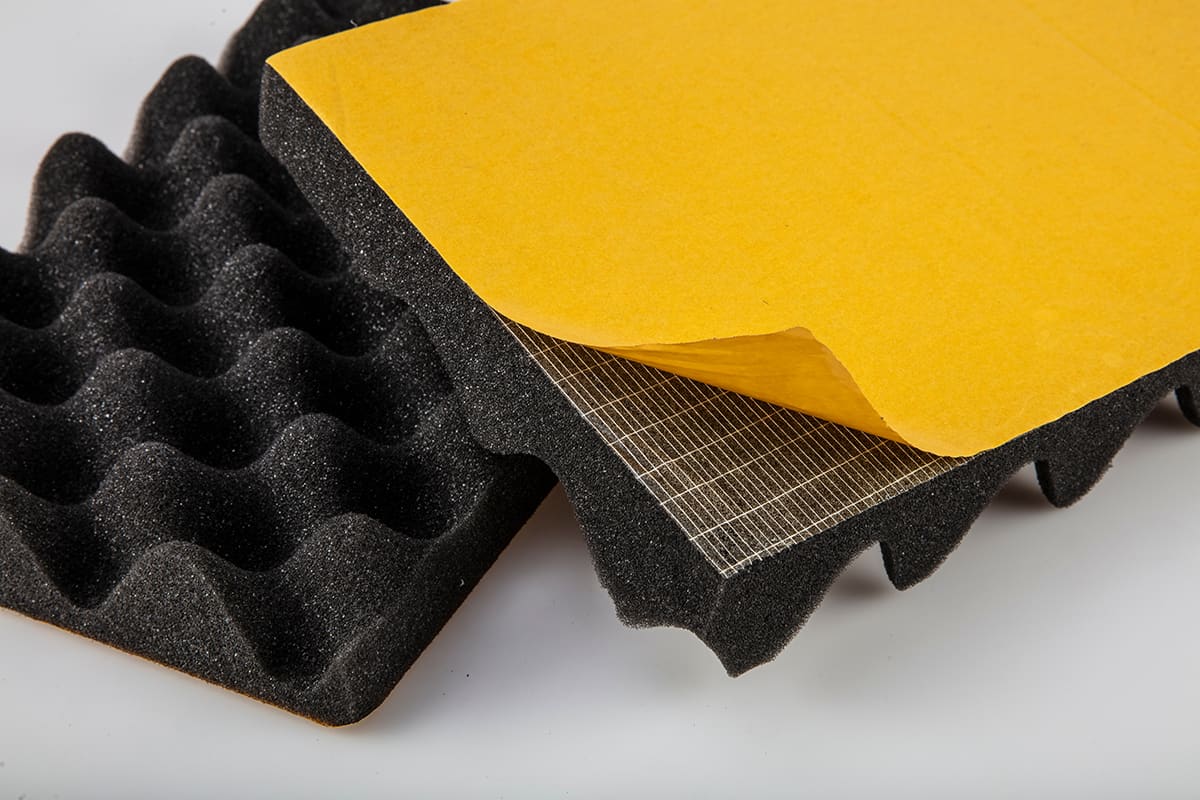
What if you have a loud dishwasher already and don’t want to upgrade to a younger, hotter model? The good news is that there are multiple things you can do to reduce your old dishwasher’s noise output without breaking the bank.
It’s worth noting that there are some noise-generating parts of a dishwasher that you just have to live with. For instance, the pumps and the mechanical noises between cycle programs cannot be soundproofed reliably. But for other things, there’s at least one way to keep noise levels to a minimum.
Let’s take a look at different dishwasher soundproofing methods below.
1. Install an insulation blanket
An insulation blanket, such as this 12 × 24-inch sheet from TITGGI, is a simple tool for reducing the noise levels coming from your dishwasher.
To install this blanket, unplug the dishwasher, move it forward and out of the way, then layer the adjacent cabinet walls with the blanket, making sure to cut them to size in order to keep them out of view.
After sticking the 1-inch-thick blanket on the cabinet walls, fit your dishwasher back into place. Make sure the blanket isn’t covering any of the exhaust vents in the dishwasher, or you may have to deal with overheating and possible leaking problems.
2. Install sound-dampening mats
Sound-dampening mats work just like insulation blankets. The difference is that mats, like the 80-mil KILMAT, are much thinner and easier to put in place.
These mats are perfect for hanging on the back wall or placing on the floor underneath the dishwasher. The mats will prevent the dishwasher’s legs and top corners from bumping into hard surfaces and generating annoying clunk-clunk noises.
3. Anchor the dishwasher properly
If you have an integrated dishwasher, the best thing you can do is to anchor it to the inner side walls of the adjacent cabinet or underside of your countertop. However, you need to make sure there’s not chance the dishwasher can wiggle around and bump into these surfaces.
When doing this, make sure to allow at least 3 inches of space between the top of your dishwasher and the bottom of your countertop. If that’s not feasible, then you can cut it down to half an inch. That way, steam that exits from the back of your dishwasher will have somewhere to go.
4. Add rugs to your kitchen
This might sound irrelevant, but hear me out.
Kitchens are filled with hard, flat surfaces that allow noise to bounce around and annoy people in the other room. What you can do to kitchen sounds from being too disruptive is by throwing a bunch of rugs onto your kitchen floor. The soft surface of the rug will work somewhat well in absorbing a bit of the noise.
The closer you place the rugs to your dishwasher, the better a chance they will have at absorbing more sounds.
How Loud Is Too Loud?
There’s such a thing as too loud. Basically, “too loud” refers to noise levels that can cause temporary or even permanent hearing loss.
According to the CDC, noises 70 dBA and above can damage your hearing. Prolonged exposure to such loud noises can cause longer-lasting temporary hearing loss. But if you were to crank the noise to 120 dBA, even brief exposure can have long-lasting effects on your hearing.
So, the good news is that dishwashers, even the loudest ones on the second-hand market, have a very little chance of damaging your hearing in any way. That said, try not to stick your head too close to the dishwasher when it’s filling the tub with water or switching between wash cycles.
Why Is Your Dishwasher Making Grinding Sounds?
The only sounds your dishwasher should make are water sounds and mechanical sounds as it moves from one cycle to the next. If there are other noises, there’s something wrong with your dishwasher.
The fortunate news is that grinding or whirring noises are usually attributed to loose objects—e.g., spoons, bowls, etc.—in your dishwasher. Whenever you overload a dishwasher or don’t load it properly, you run the risk of objects becoming dislodged and falling to the tub. When the spraying arms begin to rotate, they’ll bump into the fallen objects and create abnormal noises.
So, load your dishwasher properly, make sure all the cutlery is secured in place in the cutlery basket or tray, and give the racks a slight wiggle before hitting the start button.
